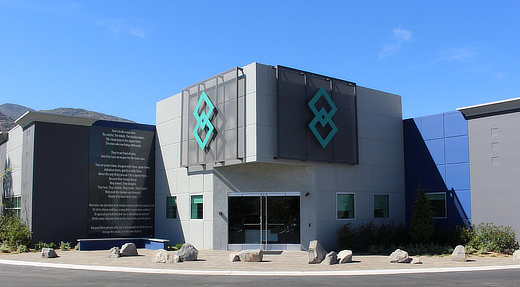Table of Contents
The blockchain technology behind the bitcoin breakthrough is a type of DLT (distributed ledger technology), a decentralized network built on a ledger of computers in which transactions are recorded and arranged in an incorruptible encrypted chain of blocks of code. The innovative component of blockchain is developed in a string of code that enables the block to store information that cannot be altered by any means and has the accessibility of being traced back to its origin.

The blockchain technology potentials in developing continents stalk from the quasi ubiquity of devices that are connected due to its accountability and traceability; it has brought about a lively debate across the African continent, which has been perceived as a groundbreaking method that can override the numerous systemic flaws affecting the African continent.
What is Blockchain Technology?
Ecobanks lead researcher Dr. Tedd George explains the blockchain technology as a new phenomenon that is tailored structurally to affect the African economies with its ubiquitous organized traceability granting an override in the centralized scrutiny and give them access to transfer trust from one corruptible human being to a transparent mathematical problem that contains encrypted code.
The debate on the blockchain network splits between two factions. One side consists of the early adopters ascertaining that the blockchain technology could do what the mobile technology has done in helping African economies to leapfrog and drive into the digital revolution cutting the edges of technologies; the other faction consists of those who are mainly concerned that a blockchain empowered society lies far ahead in the pipeline which would take energy as well as time to be employed in solving immediate problems which may be established.
The premiers have established that there is harmony about understanding blockchain technology as a major opportunity to meet with developed continents by embracing a technology that will eventually grant the access to thwart the development of soon to be obsolete entities.
Blockchain Transaction Costs
The reason behind the outrageous transaction costs in countries with emerging markets is classified by the presence of corrupted intermediaries and the absence of a system with incorruptible checks and balances in their institutions, which is already in existence in developed countries of the world. Apart from contributing to society’s good functioning, organizations are averse to and reluctant to embrace new technologies and unsettle the status quo.
Although some critics have addressed the environmental cost of engineering the super databases required to mine cryptocurrencies, especially in Africa, where energy supply has been a major issue facing its continent
In mid-2018, the application of this technology has encompassed a wide range is sectors. Financial services, Legal, and logistics are the highest level of transactions due to their relatively high level of reliance on third-party transactions. Cryptocurrencies are now regarded has substituted for recent inflation sensitivity and high volatility currencies in the financial sector since they do not operate in a centralized network or subject to the government’s regulations.
HERE ARE SOME OF THE FEW STARTUPS THAT HAVE ADOPTED THE BLOCKCHAIN TECHNOLOGY IN AFRICA.
- Bitpesa: This is an online payment network that grants access to carry out transactions in bitcoin. It has been largely adopted for use as a B2B service.
- Bithumb: This is a developed accelerator for blockchain technology solutions in Africa
- Agricledger: It is a blockchain-based startup in Kenya that gives farmers access to know their buyers and what is covered in the market prices.
- Twiga foods: an organized startup that connects gamers to the markets and kiosks in Kenya. They have partnered with IBM recently to diversify blockchain-based financial solutions.
- Bitland: A startup that uses blockchain technology to enhance land processes registration by intensifying its security. It is based in Ghana.
- NairaEx and Luno: This is one of the fastest leading cryptocurrency exchanges in Africa’s continent.
- BitcoinAfrica.io: it is at its early stage of development, and it is leading the news platform on blockchain and cryptocurrencies.
Blockchain Technolgy Growth in Africa
The exponential growth and interest in DLTs have attracted many initiatives like the blockchain Africa Conference in 2018, organized by Microsoft and IBM in the Homonymous in Lagos, Kampala, and Johannesburg. The future of transactions and interactions among countries is likely to take a peer-to-peer model and desert the current centralized system that has been dominant as technology is now a tool that pioneers decentralization and crowds out intermediaries.
DLTs like the blockchain are anticipated to metamorphose into a general-purpose technology that will cover a wide range of areas, especially from business to politics.
Just as mobile phones were understood as a medium for innovation across Africa, GSMA has approximated smartphone penetration will hit over 50% by 2020 and 900 million individuals by 2025. Finding a fertile to thrive could be the solution to the blockchain. Despite technological capacity not equating authorities and feasibility as they are observed with some government’s strict regulation through its centralized system, it is still a solid restriction against change and disruptive solutions.
Futuristic articles on WIRED in 2014 asserted that in Africa and South Africa, whether it’s bitcoin or another cryptocurrency in the blockchain network, it has major transformative potential. Recently, blockchain technology has been accepted to a degree in civil society, which is being tackled in political debates.
The progressive decentralization of making a decision and removing expensive go-betweens beyond blockchain is the tangible achievements made possible by the rapid spread of the technology from mPesa to users.
Blockchain Technology and Emerging Markets
However, technology cannot bear the weight alone regarding the ongoing digital transformation across emerging markets. Startups can play a vital role in speeding the process by mounting pressure on corporations and government enforcing institutions to dismantle obsolete systems.
A successful transition will be possible if only several government stakeholders to system builders will agree to apply appropriate strategies, especially in education. This transition process will include a great deal of investment to curb digital illiteracy in the cause to provide adequate skill sets.
BLOCKCHAIN IN NIGERIA AND KENYA
In Africa, nations like Nigeria and Kenya have made plans to pursue greater cooperation and regulation within the private sector to leverage the accruable profits from blockchain technology. Amazingly, Nigeria’s transport establishment NURTW (Nigeria Union of Road Transport Workers) and other private individuals have launched a blockchain-based scheme to improve interstate transportation on the road.
Stakeholders are positive about the program that will improve road transportation safety, insurance, and proper record keeping. Efforts made within the technological implementation needs to be dedicated to making blockchain protocols easy to use. The positive steps taken by telecommunication service providers have brought about a significant penetration of Mobile services in Africa’s continent.
Kenya is making positive efforts to lead the adoption of blockchain in Africa. In mid-2018, there have been reports from the government to enact regulations for blockchain technology and cryptocurrency in Kenya. A task force on blockchain and artificial intelligence in Kenya reported to the government to take into consideration to create a natural digital currency.
Central Bank of Kenya in Favor of Blockchain Technology

News has it that Kenya’s central bank favors drafting laws to adopt the initial coin offering ICOs in Kenya. However, the central bank of Kenya has issued warnings concerning the proposed dangers in Libra cryptocurrency.
The African technological and economic development plan is noticeably moving towards a focus on fourth industrial revolution innovations like blockchain technology. The world economic forum said that about 10% of Africa’s global GDP would be stored on the blockchain network by 2027. The spending on blockchain solutions worldwide is anticipated to grow to 12billion by 2022.
Blockchain technology solutions can fill the gaps and replace legacy systems where there are inefficient technology infrastructures in African Nations to allow innovations established to drive a new era of growth.
The blockchain can foster innovation and widen access to financial services in the cause of improving emerging markets. Its introduction has pioneered the use of cryptocurrencies to facilitate trades across borders. These foster solutions to variations in currencies made it difficult for individuals in various African countries to trade with other countries in the world.
Blockchain technology innovation allows people to carry out transactions without intermediaries; this makes blockchain a reliable solution that will solve the African continent’s major problem, especially corruption, which is pertinent among African Nations.





No Comment